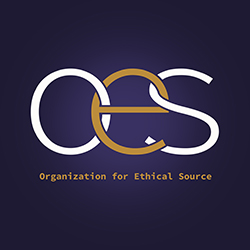
The Organization for Ethical Source is a non-profit association governed by the present statutes and, secondly, by Articles 60 et seq. of the Swiss Civil Code. It is neutral politically, and non-denominational.
The Organization’s headquarters are located in the State of Geneva, Switzerland.
The Association shall be of unlimited duration.
The Association shall pursue the following aim:
To promote ethical practices and outcomes in free and open source software and other digital commons.
The Association’s resources are derived from:
The funds shall be used in accordance with the Association’s social aims.
Any natural person or legal entity, with the exception of organisations pursuing commercial goals, may become a member if they have demonstrated their dedication to the goals of the Association through their commitments or actions, and agree to abide by the association’s Code of Conduct.
The Association comprises:
Active, Emeritus, Founding, Honorary, and Supporting Members must be natural persons.
Requests to become a member must be addressed to the Committee. The Committee admits new members and informs the General Assembly accordingly.
Membership ceases:
In all cases the membership fee for the current year remains due. Members who have resigned or who are expelled have no rights to any part of the Association’s assets.
Only the Association’s assets may be used for obligations/commitments contracted in its name. Members have no personal liability.
The Association shall include the following organs:
The General Assembly is the Association’s supreme authority. It is composed of all the members.
It shall hold an Ordinary Meeting once each year. It may also hold an extraordinary session whenever necessary, at the request of the Committee or at least of one-fifth of its members.
The General Assembly shall be considered valid regardless of the number of members present.
Members may participate in the General Assembly remotely using electronic means (e.g. videoconferencing).
The Committee shall announce to the members by electronic means the date of the General Assembly at least 30 days in advance. The formal notification of the General Assembly, including the agenda, shall be sent by electronic means to each member at least 10 days prior to the date of the meeting.
The General Assembly:
The General Assembly is presided over by the President of the Association. The President may delegate this responsibility to another Committee member.
Decisions of the General Assembly shall be taken by a majority vote of the members present or participating remotely using electronic means. In case of deadlock, the President shall have the deciding vote.
Decisions concerning the amendment of the Statutes and the dissolution of the Association must be approved by both a two-third majority of the members present or participating remotely, and all of the Founding Members present or participating remotely.
Votes are by a show of hands. Voting can also take place by secret ballot, if at least one member requests it. Members may vote using electronic means.
Elections use a single transferable vote system.
The agenda of the ordinary annual session of the General Assembly must include:
The Committee is authorized to carry out all acts that further the purposes of the Association. It has the most extensive powers to manage the Association’s day-to-day affairs.
The Committee is composed of at least three (3) and at most seven (7) members elected by the General Assembly.
The membership fees of Committee members are waived.
The Committee self-constitutes and designates, at a minimum, a President, a Secretary, and a Treasurer.
The term of office is two (2) years, renewable without limitation.
The Committee meets as often as the Association’s business requires.
The Committee follows a consensus-seeking decision-making approach and only falls back to voting after all reasonable attempts to address concerns have been exhausted.
The Committee members work on a volunteer basis and as such can only be reimbursed for their actual expenses and travel costs. Potential attendance fees cannot exceed those paid for official commissions. For activities beyond the usual function, each Committee member is eligible for appropriate compensation.
The paid employees of the Association have only a consultative vote on the Committee.
The functions of the Committee are:
Each year the General Assembly appoints two auditors. It may also entrust this task to a fiduciary company.
The auditors shall check the operating and annual accounts prepared by the committee and present, using electronic means, a written and detailed report to the annual ordinary general meeting.
The Association is legally bound by the individual signature of the President, the Secretary, the Treasurer, or a Founding Member.
Communication from the association to its members shall use electronic means.
The financial year shall begin on 1 January and end on 31 December of each year.
Should the Association be dissolved, the available assets should be transferred to a non-profit organization pursuing public interest goals similar to those of the Association and likewise benefiting from tax exemption. Under no circumstances should the assets be returned to the founders or members. Nor should they use a part or a total of assets for their own benefit.
The present Statutes have been approved by the Constituent General Assembly of November 23, 2020 in Laconnex, Geneva, Switzerland.